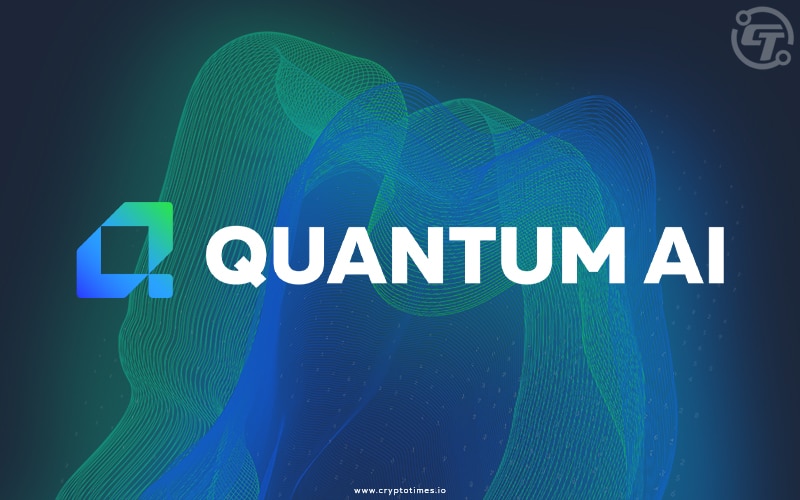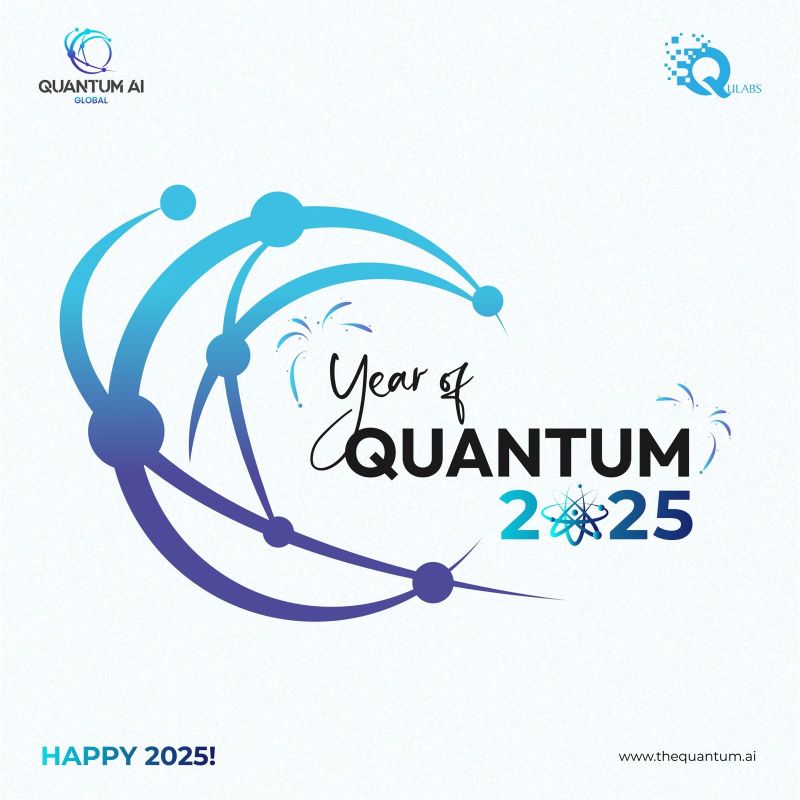
Quantum AI Investments
Quantum AI Investments is the intersection of quantum computing and artificial intelligence. It improves the capacity of artificial intelligence systems by using the great computational power of quantum computers. Although classic artificial intelligence processes data using conventional computers, quantum computing provides exponentially quicker processing for particular jobs including optimization, pattern identification, and machine learning model training. By solving problems formerly deemed insurmountable, Quantum AI hopes to change how computers learn, think, and make decisions.
Quantum Computing:
Solving problems including great combinations, such cryptography, optimization, and simulation of quantum systems (e.g., molecules in chemistry), they are especially potent.
Artificial Intelligence:
This covers computer vision, natural language processing, machine learning, and reasoning. AI learns from data and modifies its conduct, therefore making it perfect for prediction, automation, and decision-making in several sectors. But the more intricate and extensive the data and models get, the more computationally challenging AI becomes—that is where quantum computing might revolutionize things.
Synergies between artificial intelligence and quantum computing
- Accelerate the model training for machine learning.
- Better feature selection and dimensional reduction.
- Enable quantum-enhanced neural networks.
- Faster solution of combinatorial optimization challenges (e.g. route optimization, portfolio management).
Quantum Artificial Intelligence’s Present Landscape
Important Players in the Quantum AI World
Quantum AI is getting great investments from a number of major technology companies:
- Google, renowned for attaining “quantum supremacy,” is creating quantum processors and combining them with DeepMind projects with artificial intelligence.
- IBM: Provides cloud-accessible quantum computers and is pushing quantum-safe artificial intelligence technologies.
- Through Azure Quantum, Microsoft is developing scalable quantum infrastructure and hybrid AIquantum platforms.
- Through AWS Braket, Amazon offers access to several quantum computers and is investigating AI use.
- Seeking to rule the upcoming generation of computational intelligence, these firms are putting resources in both hardware and software levels.

Major Businesses and Startups
Many new companies are leading creativity in the field, including:
- Rigetti Computing: Concentrated on machine learning interfaces and quantum cloud services.
- Developing trappedion quantum computers and aiming commercial artificial intelligence applications are IONQ.
- Zapata Computing provides Orquestra, a platform for business machine learning applications combining quantum and traditional computers.
- Psi Quantum: With potential applications in mind, developing fault tolerant quantum computing with artificial intelligence.
Collaborations and Major Research Institutions
Major institutions and research laboratories are pushing quantum artificial intelligence research:
- For artificial intelligence, MIT, Stanford, and Oxford are creating fresh quantum algorithms.
- For scientific discovery, hybrid AIquantum research is undertaken by Los Alamos National Lab as well as CERN.
- Major actors are international partnerships such QuTech (Netherlands), Quantum Flagship (EU), and The Quantum Economic Development Consortium (QEDC) (US)
- Academic institutions are essential for producing fresh ideas, developing skills, and connecting scientific innovation with industry use.
Initiatives by the Defense and Government
Governments see Quantum AI as a strategic asset:
- Funding for R&D and national laboratories comes from the U.S. National Quantum Initiative Act.
- With billions in financing, China’s national quantum strategy includes artificial intelligence integration.
- In quantum technology, EU’s Quantum Flagship Program encourages cross-border research and innovation.
- Defense agencies such as DARPA and NATO investigate quantum artificial intelligence for cyber defense, surveillance, and autonomous systems.
Publicly Traded Companies
| Company | Ticker Symbol | Focus Area | Quantum AI Involvement |
| IBM | IBM | Quantum cloud, AI platforms | Quantum processors, Qiskit, Watson AI |
| Alphabet (Google) | GOOGL | Quantum research (Google Quantum AI Lab) | Sycamore processor, DeepMind AI |
| Microsoft | MSFT | Azure Quantum, AI cloud | Hybrid AI-quantum services |
| Amazon | AMZN | AWS Braket, AI on cloud | Quantum simulation, logistics optimization |
| IonQ | IONQ | Trapped-ion quantum hardware | Commercial quantum + AI applications |
| Rigetti | RGTI | Superconducting qubits, quantum cloud | Quantum machine learning tools |
| Nvidia | NVDA | GPUs for AI and quantum simulation | Quantum AI SDKs (cuQuantum) |
Investment Opportunities
Venture Capital and Private Equity Involvement
Because of the disruptive potential and first mover benefit, venture capital (VC) and private equity (PE) companies are very supporting of Quantum AI startups. Among the main trends are:
- Early-stage financing in companies creating quantum algorithms for artificial intelligence applications.
- Hardware scalability and enterprise integration take center stage in Series B and C rounds.
- Increasing interest from deep tech-focused venture capital companies such as Andreessen Horowitz, Sequoia, and Lux Capital.
- Corporate venture arms (Google Ventures, Intel Capital among others) also help to ensure strategic alignment.
ETFs and Quantum/Quantum AI Investments
Although no ETF only targets Quantum AI yet, some thematic ETFs contain pertinent firms:
- Includes some quantum exposure for ARKQ (ARK Autonomous Tech & Robotics ETF), which also features AI leaders Nvidia and Tesla.
- QTUM (Defiance Quantum ETF) is aimed on quantum computing businesses including IonQ and Rigetti.
- ROBT (First Trust Nasdaq AI and Robotics ETF) – AIfocused with indirect exposure to quantum AI synergies.
IPOs and SPACs in the Quantum AI Market
Through SPACs (Special Purpose Acquisition Companies), several Quantum AI businesses have gone public:
- In 2021, IonQ was the first pureplay quantum computer company to go public through SPAC.
- DWave likewise became publicly traded in 2022 via a SPAC.
- Depending on financial demands and market conditions, companies like Psi Quantum or Xanadu could provide future IPOs.
Technological Challenges and Hazards
Scalability restrictions and hardware
Quantum AI’s basis of the underlying quantum hardware is critical. Today’s structures:
- Restricted qubit counts; generally under 100 usable qubits.
- Experience brief coherence times and significant error rates.
- Need strong cooling and complicated calibration.
Bottlenecks in Developmental and Algorithmic Complexity
Quantum AI algorithms are still in early stages of investigation:
- Many depend on variational quantum algorithms, which are susceptible to noise.
- There is a lack of consistent development and testing frameworks.
- In AI applications, quantum advantage—that is, proven superiority over classical techniques—yet to be thoroughly shown.
Talent Shortage in Quantum AI Investments
Quantum artificial intelligence calls on a rare combination of knowledge in:
- Physics of quantum mechanics
- Learning through machines
- Software design
- Arithmetic
Security and ethical dangers
The coming together of strong artificial intelligence with quantum systems creates several dangers:
- In artificial intelligence, lack of interpretation and algorithmic bias endure.
- Breaking present encryption with quantum cryptanalysis might cause cyber security threats.
- Dual use technologies might be weaponized or abused.
- Un regulation and oversight in this rapidly changing environment opens ethical gray areas.
Forecasts and Trends in the Market
Projections for Growth in Quantum Computing and Artificial Intelligence
- From around $1.5 billion in 2024, the quantum computing market is expected to grow to $10 billion plus by 2030, a compound annual growth rate (CAGR) of roughly 35%.
- Once fundamental breakthroughs happen, quantum artificial intelligence should become a market worth over $50 billion by 2035.
Industry wise Adoption Patterns
Among the sectors now investigating or piloting Quantum AI are:
- Pharmaceuticals: Drug Discovery and Molecular Modeling
- Finance: risk assessment; portfolio optimization.
- Logistics: Modeling of supply chains and route planning.
- Cybersecurity: anomaly detection and postquantum encryption.
- Energy: Materials modeling; smart grid optimization.
Corporate Strategy Shifts and M&A Activity
- To build quantum ability and IP portfolios, tech behemoths are buying businesses.
- Examples: Microsoft’s collaborations with Honeywell Quantum; Nvidia’s move into quantum simulation.
- Early stage companies make strategic alliances—IBM + Cleveland Clinic, Google + NASA—more frequent than pure acquisitions.
Regional Investment Patterns:
- Leading in private investment, university research, and government funding (through NSF, DARPA, DOE), United States.
- Coordinated under the €1B Quantum Flagship project, the European Union has a strong collaborative culture.
- Massive, government-driven investment (about $10 billion+) in quantum supremacy and artificial intelligence for national security characterizes China.

Regulatory and Policy Considerations
Intellectual Property and Patent Issues
Although the race to innovate in Quantum AI has resulted in a rise in patent applications, it also presents problems:
- Patent difficulty: Overlapping mathematical ideas make it challenging to patent precisely quantum algorithms and artificial intelligence systems.
- Jurisdictional incompatibility: Different countries handle software and quantum patents differently, therefore causing uncertainty.
- IP conflicts could develop as businesses rush to obtain exclusive rights over fundamental technologies.
International Cooperation and Competition
Quantum Artificial Intelligence is an international endeavor both cooperative and competitive:
- Collaborations: often participate in consortia (e.g., EU Quantum Flagship, US QEDC) with national laboratories, private businesses, and universities.
- Countries like the United States, China, and the European Union are fighting for technical dominance, therefore causing tech nationalism.
- Emerging to stop sensitive technology transfer, especially around defense use, are export controls and research security procedures.
Government Support and Incentives
Governments are supporting Quantum AI vigorously by means of:
- Research grants (e.g., NSF, DOE, Horizon Europe).
- Tax benefits for quantum and artificial intelligence research and development.
Committed quantum techniques include:
- $1.2 billion+ under the U.S. National Quantum Initiative
- The National Quantum Plan of China ($10 billion+)
- Canada’s Quantum Approach: approximately $360 million
- India’s National Quantum Mission ($8,000 crores)
Studies of cases
Quantum Supremacy and AI Projects of Google
Google said quantum supremacy in 2019 by solving in 200 seconds a problem that would require 10,000 years for a supercomputer utilizing its Sycamore processor. Though the issue had minimal actual world application, it proved doable. Through DeepMind, Google is also including quantum methods into its artificial intelligence study by investigating quantum-enhanced reinforcement learning and material simulations.
IBM’s Roadmap for Artificial Intelligence and Quantum Network
Via IBM Quantum Experience, a cloud platform, IBM offers quantum computing. It also debuted the IBM Quantum Network, linking companies and scientists to shared equipment. IBM’s strategy is:
- More than 1,000 qubit systems by middle 2020s
- Integration with Watson artificial intelligence for actual life artificial intelligence uses
- Partnerships in the business (e.g., Cleveland Clinic for quantum assisted treatment)
Real World Quantum AI Applications and D-Wave
Leading quantum annealing, a type of quantum computing designed to tackle big combinatorial problems, is DWavel. Although it is not universal quantum computing, it is quite excellent in certain applications like:
- Improving traffic
- Route via logistics
- AI-based scheduling difficulties
Quantum AI in Finance, Healthcare, and Logistics
- Finance: JPMorgan and Goldman Sachs are evaluating quantum methods for risk modeling and asset optimization.
- Healthcare: Genomic analysis, molecular modeling, and clinical trial optimization are all under research using Quantum AI.
- FedEx and DHL are investing in quantum artificial intelligence to enhance warehouse automation, inventory planning, and delivery path optimization.
- Early adoption is being pushed by these industries because of large data volumes and complexity of optimization.
Investors’ Guide
Due diligence for companies founded on Quantum AI Investments
Before investing in Quantum AI businesses, investors should:
- Assess technical feasibility: is the research solid or theoretical?
- Investigate founder expertise: Are they founded in artificial intelligence/quantum physics?
- Look at the IP portfolio: Does the company possess exclusive techniques?
- Evaluate traction and partnerships: are there early validation or PoCs?
Key Metrics and KPIs to Watch
Here is a table summarizing important KPIs for evaluating Quantum AI investments:
| Metric | What It Measures | Why It Matters |
| Qubit Count (for hardware firms) | Computing power | Indicates progress toward scalable quantum |
| Error Rate / Fidelity | Stability and accuracy of quantum computations | Lower is better for reliable applications |
| Runway and Burn Rate | Financial health | Shows how long the startup can operate |
| Number of Algorithms Published | Innovation and IP generation | Reflects R&D output and thought leadership |
| Commercial Pilots or Clients | Market validation | Indicates real-world interest and adoption |
| AI/Quantum Hybrid Capabilities | Integration maturity | Key for cross-functional use cases |
| Strategic Partnerships | Industry credibility | Partnerships with IBM, AWS, etc., boost value |
Navigating Hype vs. Reality
- Many exaggerated claims surround Quantum AI, which is surrounded by buzz. Investors should:
- Distinguish imagined ideas from current abilities.
- Know that years away is true quantum advantage in artificial intelligence.
- Look for hybrid systems including classical and quantum elements—these are more commercially feasible now.
- Beware of “black box” businesses that offer research without revealing their methods.
Creating a Diverse Quantum Artificial Intelligence Portfolio
A wise Quantum AI portfolio consists of:
- Large cap tech companies with active quantum/AI efforts (e.g., IBM, Google, Microsoft).
- Specialized quantum companies (e.g., IonQ, Rigetti).
- Thematic ETFs or funds for exposure across industries.
- If investing using family offices or charitable endowments, scholarly collaborations or sponsorships.
- Think about exposure to empowering technology like quantum sensors, cryogenics, and AI chips.
Final Thoughts
Between two transforming technologies—quantum computing and Quantum AI Investments. Though their levels of maturity vary, the convergence of the two fields promises to transform sectors from finance to healthcare. Driven by both institutional capital and government grants, investment interest is quickly rising. Still, the way ahead is difficult and presents ethical, legal, and scientific obstacles. Success will depend not only on selecting the right companies but also on supporting underlying infrastructure, talent development, and ethical innovation as the ecosystem matures.
Questions usually asked
Is Quantum Artificial Intelligence investable right now or yet experimental?
Today, one may invest somewhat in quantum artificial intelligence. Although pureplay possibilities (like IonQ or DWave) are still speculative, major corporations (Google, IBM, Microsoft) offer indirect but more reliable exposure. Hybrid systems and enabling technologies are already giving first benefits.
How long till mainstream adoption of Quantum AI
Depending on advances in hardware, algorithms, and scalability, Quantum AI might take 5 to 15 years to be widely adopted. Early adoption is already underway in finance, logistics, drug discovery, and research mostly by means of hybrid strategies.
How does Quantum Artificial Intelligence differ from classical artificial intelligence?
Classical artificial intelligence processes information using statistical learning on conventional processors; quantum artificial intelligence solves some issues exponentially faster than classical approaches by parallel information processing using quantum mechanics (e.g., optimization, simulation).
In Quantum AI, investors need to be informed of which risks?
Among the main dangers are:
- Technology risk: Hardware might not scale as expected.
- Few experts are schooled in artificial intelligence and quantum mechanics; this results in a dearth of talent.
- Ethical questions: Dual use applications in war or surveillance.
- Regulatory Obstacles: Various patent and data legislation in different nations.
Can I invest with ETFs or must I choose single stocks?
You may do both. Thematic ETFs like QTUM and ARKQ give broad exposure to quantum and AI companies. For greater confidence, you might buy particular public equities or even early-stage startups through venture networks or private equity firms.
Read more about AI on Technospheres.
